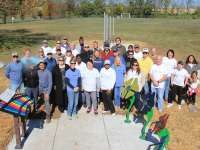A gathering of publishers, university library and learning specialists, community groups, textbook platforms and other suppliers met in the UK in January to explore creating original content to serve disabilities, and adapting content for maximum accessibility.
In one session, Dr. Peter Williams gave an outline of his work on the digital lives of people with learning disabilities as they use mobile devices, laptops, apps and social media. His project includes a look at prevalence of use, agency (self or supporter), purpose, consequence (benefit/barrier) and ease of use of mobile devices. Each participant is helping to produce an accessible, annotated hyperlinked electronic archive of their experiences; they have their own web page to record what they enjoy and what they find difficult. Issues unearthed include difficulties in finding photos as phones offer no sort mechanism, in using the access code in a supported house, and understanding how music can get onto a phone.
In another gathering, Philip Gibson, Project Manager for Camphill Village Trust, outlined findings from creating a communication platform for people with learning disabilities. He found that those with learning disabilities were trying out quite a few digital services – Skype, email, Facebook, Twitter, Instagram, apps, etc. Most use was via touchscreen device rather than laptop, and was mostly to keep in touch.
The full report on the gathering can be found here.
To learn more about the 7 Principles of Inclusive Playground Design best practices for creating meaningful play environments for people of all ages and abilities in your community, visit playcore.com/solutions/inclusion.



